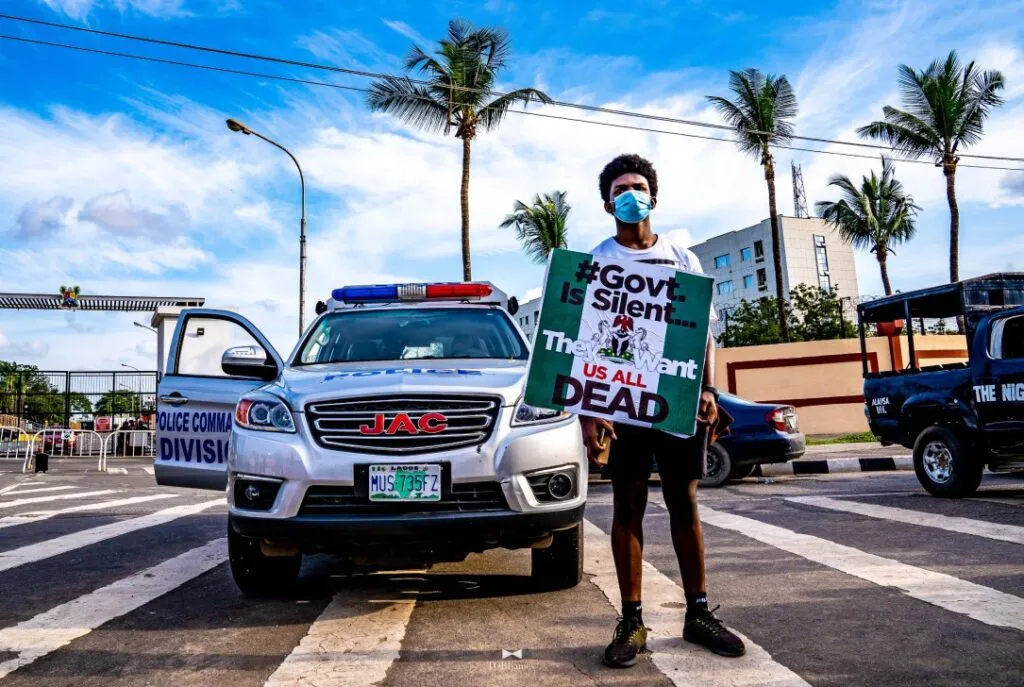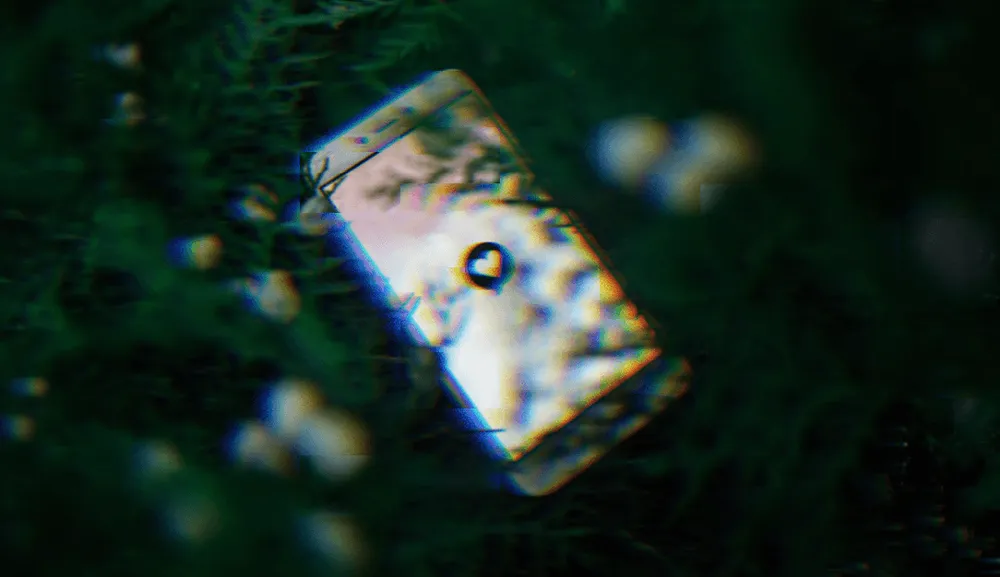For Queer Nigerians, online dating can come with deadly risks
Boluwatife, an interior designer who lives in Nigeria, says 2019 was the worst year of his life.
That year, there were lost jobs. Boluwatife’s father also died, triggering a major family dispute over his estate.
“But the worst part,” Boluwatife told The Record, was that he “got kitoed that same year.”
In the local queer community, the slang ‘kito’ is used to refer to situations where homophobes disguise themselves as queer people in order to attack, exploit and even kill queer people who they lure with plans for romantic encounters.
Using fake profiles to scam people — also known more generally as “catfishing,” especially when it involves dating sites or apps — is a common form of social engineering.
But such attacks can be particularly devastating for victims who are sexual minorities in countries that stigmatize gay relationships, lack laws that protect queer people from discrimination based on their sexual orientation or gender identity, or even criminalize homosexuality — as is the case in Nigeria.
Kitoing and similar incidents in other countries also spotlight the heightened online security risks many queer people around the world face everyday, especially in cases where the internet may be one of the few places they can access community.
But some queer Nigerians have also used the power of the internet to create online communities for calling out bad actors — including creating digital publications to warn others about apparent insider threats.
Boluwatife, who we are only identifying by his first name for his safety, said he has friends who’d been kitoed before and thought listening to their experiences would help him avoid the same fate.
But he was wrong.
Boluwatife told The Record his experience began on Badoo, a popular online dating app.
“I don’t often like Badoo because of how my friends describe it as the ghetto, but I thought I could find something legit there,” he said. Badoo did not respond to a requests for comment.
Like anyone who meets someone they find attractive on a dating app, Boluwatife started flirting. Before he realized it, they were down for a hookup.
“We decided to hook up at a hotel he had chosen. On arrival, I sensed something was off but I was so eager to move ahead since I felt I had chatted with this person for a while and I basically knew him so I walked up to him sitting in a bar and we started chatting,” Boluwatife said.
Then three men walked up to them and started hitting him.
“I was so confused at first, but then I realized I have been set up. They kept calling me ‘homo,’” Boluwatife said.
“They even used a small knife on me, I was bleeding and crying for help but the only person available was the bartender who was probably one of them,” he said.
The attackers took his watch and his phone, forcing him to open up the latter so they could look through his messages, he said. They also made Boluwatife transfer 300,000 NGN (about $724) to them, according to Boluwatife. Then they threw him out.
The experience left him traumatized, he told The Record, but he felt unable to report the incident — homosexuality is illegal throughout the country and can lead to imprisonment.
A global issue
Boluwatife’s experience is one shared by other queer people in Nigeria and other countries across the world where gay relationships are heavily stigmatized or criminalized. This can translate to the digital world in ways leave the queer communities at risk for surveillance, censorship, and discrimination, as highlighted in a 2020 Recorded Future report. For example, similar dating app sexuality-based extortion has been reported in India. And being open on other online platforms may also carry risks of punishment by repressive regimes.
In 2020 Human Rights Watch released a report on a Yemeni blogger named Mohamad Al-Bokari who was sentenced in Saudi court to 10 months in prison, a fine of $2,700 and a deportation to Yemen for making a post on social media requesting equal rights to all Saudi Arabians — including queer people.
After his arrest, he was subjected to an anal examination by security officers, an intentional painful check that enabled them verify if he engaged in any homosexual practices.
Nation-state and other threat actors have further targeted queer activists and groups. And the queer community also remains more at risk for activities like doxxing — when personal information is posted online and used for harassment — which can compromise their physical safety.

Although the internet can be a place of liberation for many queer Nigerians, the general oppression they face can make it hard to gauge risk and nearly impossible to seek help with the victimized.
In January 2014, Goodluck Ebele Jonathan, Nigeria’s former president, signed into law the Same Sex Marriage (Prohibition) Act or SSMPA. The law criminalizes sexual relationships between two persons of the same gender and includes punishments of up to 14-years-imprisonment.
Though no one has been sentenced under it, the law means queer Nigerians live under constant legal threat and “contributes significantly to a climate of impunity for crimes committed against” them, according to a Human Rights Watch 2016 report. The SSMPA law also imposes a 10-year sentence for those who “registers, operates or participates in gay clubs, societies and organisation, or directly or indirectly makes public show of same sex amorous relationship in Nigeria.”
In the northern part of Nigeria, some areas also uphold a version of Sharia law that demands death by stoning for homosexual activity, although those convicted are typically instead physically punished. In March 2014, Al Jazeera reported on four men who were sentenced under Islamic court and were punished with 15 lashes of cane if they failed to pay the $120 fine attached to them.
With the existence of these laws, queer Nigerians are often forced to go online in order to get some measure of privacy while also finding community. But homophobes followed them, in some cases recruiting queer people to help them victimize the community through kito as a source of livelihood for themselves, essentially creating insider threats within Nigeria’s online queer community.
Emeka, a young professional in a major Nigerian city who The Record is only identifying by his first name for safety, said he was the victim of one such attack.
Last April, he came across a friend on Tinder whom he’d known since 2018, so they made a date, Emeka said.
“He invited me over to his house, served me and made me comfortable. He told me he was going to buy some condoms and lubricant. After like six minutes, four guys walked into the room, they held bottles and rods,” Emeka said.
“At first I didn’t understand what was happening,” Emeka said, because he knew the person — who he called Junior — who lured him.
The men beat him, stripped him naked, then poured alcohol over him, he said.
“They said if I didn’t start confessing how I was gay they would set me on fire there so I obeyed and they videoed me,” Emeka said.
Then they took his phone, he said, and withdrew the money that was left in his account — about $85.
For Emeka, the trauma of betrayal lingered for a long time.
“What killed me most was thinking Junior felt what I felt when we met. It even hurt the most when he threatened to out me to my family. Not everyday do you love someone and they betray you,” he said.
Victims of kito can also often feel helpless because reporting it to law enforcement, as you might do with any other violent crime, might get them prosecuted under the SSMPA law — leaving them in an even worse situation.
A safe space for queer Nigerians
However, some of these victims aren’t having it.
Kitodiaries is a blog that has helped queer Nigerians navigate their sexuality.
Founded after the SSMPA law came into existence, the blog operates as an educational safe space for queer Nigerians where they can come and try to learn from other community members’ good and bad experiences.

The blog also has a page titled “kito alert,” where they provide information about individuals carrying out such attacks. This allows queer Nigerians who are regular readers to be aware of people who are known threats to the community.
But being vocal about LGBTQ+ rights in the country also comes with risks.
Matthew Blaise, one of Nigeria's most prominent LGBTQ+ activists, was arrested by the men of the disbanded SARS unit on issue of perceived homosexuality, although technically only identifying as gay isn’t a crime in the country. (SARS, also known as the Special Anti-Robbery Squad was a subgroup of the police force and founded in 1992 to tackle societal vices like armed robbery, cultism and other major crimes. However, the unit became notorious over time as it extorted and killed youth for having dreads, or carrying iPhones and laptops — leading to popular #EndSARS protest that ended the unit.)
For Blaise, they were battered and tortured at the prison.
In an interview with Open Democracy, the activist described being haunted by the experience.
“They messed with my mental health. I kept seeing those men in everything I do. On the street. In the face of people that genuinely love me. This is what they do to you. They break you until you are unable to pick up your shattered pieces any more,” they said.
Ugonna-Ora Owoh is a journalist and writer living in Nigeria.


